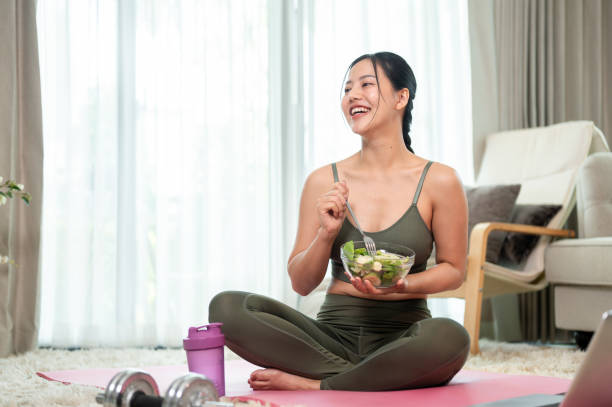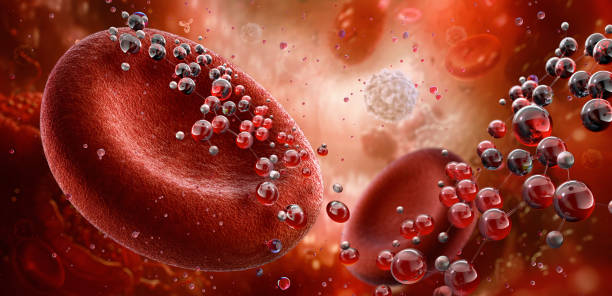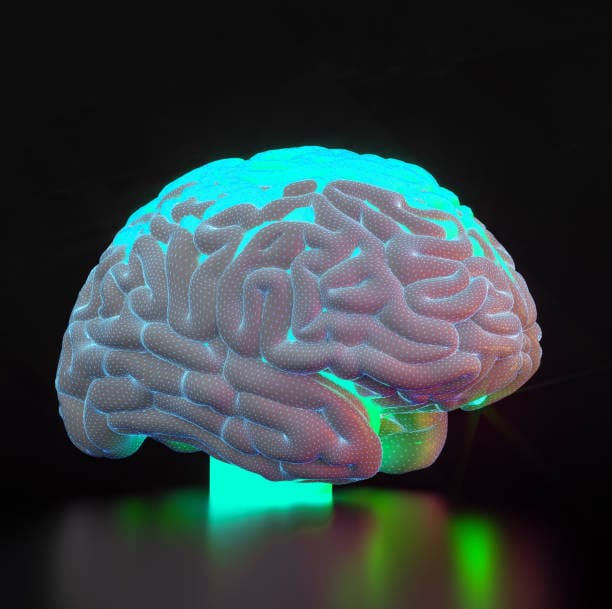Before diving into the nitty-gritty of routines and rituals, it’s important to understand what we really mean when we talk about “holistic health.” This isn’t just a fancy buzzword that belongs in a spa brochure. Holistic health is a full-bodied, all-encompassing approach to wellness that sees your physical, mental, emotional, and even spiritual wellbeing as deeply interconnected.
When one part of your health is out of balance, it inevitably affects the others. You can be physically fit but mentally drained, spiritually inspired but nutritionally deficient. A holistic routine acknowledges that you are not a machine made up of parts that can be isolated and treated individually. You are a complex, beautiful system where everything is connected—from your hormone cycles to your gut microbiome, your emotional resilience to your sleep quality. And the key to thriving isn’t found in just one area—it’s in the synergy of them all working in harmony.
Embracing the Seasons of Your Life
Your body is not static. It doesn’t behave the same way at 21 as it does at 41 or 61. It doesn’t even behave the same way during one month. Hormonal fluctuations, life transitions, reproductive changes, and emotional phases all create distinct seasons in a woman’s life—and your health routine needs to respect that rhythm.
Whether you’re navigating the vibrant chaos of your 20s, the balancing act of your 30s, the hormonal rollercoaster of perimenopause, or the wisdom-rich stage of postmenopause, your health needs change. And honoring these shifts, rather than resisting them, is one of the most profound ways to embrace holistic wellness.
Creating a health routine that evolves with you is empowering. It means listening to your body without judgment. It means acknowledging that what worked last year might not work today—and that’s not failure; it’s growth. This awareness is the heartbeat of a holistic lifestyle.
Ritualizing Nourishment, Not Just Eating
Food is often reduced to numbers—calories, macros, grams, milligrams. But nourishment is about far more than what ends up on your plate. Holistic nutrition asks: How do you feel about food? Do you eat with joy, or guilt? Do you rush through meals, or do you sit down and savor?
Feeding yourself should be a ritual, not a chore. It starts with choosing whole, vibrant foods that come from the earth, not a factory. It means embracing healthy fats without fear, seeing greens not as punishment but as celebration, and listening deeply to what your body actually craves—not what diet culture tells you it should crave.
For women, nutrition is especially powerful because food interacts with our hormonal systems in profound ways. The right mix of fiber, healthy fats, complex carbs, and protein doesn’t just fuel us—it stabilizes our moods, supports fertility, eases PMS, nourishes our bones, and strengthens our immune systems.
But food is also cultural, emotional, and social. So a holistic approach doesn’t just look at nutrients—it looks at how you feel when you eat. Are you relaxed, connected, grateful? These emotional tones influence digestion more than you might think. Stress can literally shut down your digestive enzymes. On the flip side, eating in a calm state—free of distractions—can transform even a simple meal into powerful medicine.
Movement as Medicine for the Soul
Exercise in a holistic health routine isn’t about punishment or calorie-burning—it’s about joy, vitality, and embodiment. It’s about moving because you love your body, not because you hate it. It’s about tuning into what your body needs today—whether that’s a brisk walk, a heart-pumping spin session, a soul-soothing yoga class, or a few minutes of stretching before bed.
Women’s bodies are cyclical, and your movement should reflect that. During your follicular phase, for example, you might feel energized and ready to tackle strength training or cardio. But during your luteal or menstrual phase, slower and gentler movement might feel better. There’s wisdom in honoring those shifts rather than forcing consistency.
Movement also supports your mental and emotional health in profound ways. It boosts dopamine, serotonin, and endorphins—chemicals that regulate mood, reduce anxiety, and combat depression. But even beyond the biochemistry, movement can be a form of meditation, a way of processing emotions, and a tool for reclaiming your body in a world that often teaches women to disconnect from it.
The key is to redefine fitness not as a means to sculpt your appearance, but as a way to nourish your body’s innate desire to move, stretch, explore, and breathe.
The Art of Rest and Deep Sleep
You can eat kale, drink green smoothies, and hit the gym five times a week—but if you’re not sleeping, you’re missing the foundation of health. Sleep isn’t just a time-out; it’s when your body repairs tissues, balances hormones, consolidates memory, and detoxifies the brain. It’s sacred.
Women are particularly vulnerable to sleep disruptions—whether from stress, caregiving responsibilities, menstrual fluctuations, or menopause-related insomnia. But that doesn’t mean sleeplessness should be accepted as the norm. A holistic routine treats sleep as a non-negotiable pillar of wellness, one that deserves as much attention as nutrition or exercise.
Creating a sacred bedtime ritual is a powerful way to support deep, restorative sleep. This could include turning off screens an hour before bed, dimming the lights, sipping herbal tea, journaling, or practicing gentle breathwork. These rituals signal to your nervous system that it’s time to transition from doing to being.
And let’s not forget rest in general—not just sleep. Holistic health values restorative time throughout your day. That might mean stepping outside for a few deep breaths, lying on the floor for 10 minutes with your eyes closed, or canceling that extra meeting in favor of stillness. Rest isn’t laziness; it’s nourishment.
Tending to Emotional and Mental Wellbeing
The health of your mind and heart is just as important as the health of your liver or bones. In fact, emotional and mental imbalances often manifest in the body as fatigue, pain, tension, or illness. A holistic routine makes space for processing emotions and supporting mental clarity.
Women are socialized to be caretakers, to prioritize others, to “be nice,” and to push through discomfort. But repressed emotions don’t disappear—they fester. That’s why a core part of any holistic routine is emotional hygiene: the regular processing, releasing, and honoring of what you feel.
This might take the form of journaling, therapy, meditation, art, movement, or simply talking to a friend who listens without judgment. It means not labeling emotions as good or bad, but seeing them as messengers. Anger might be telling you that a boundary was crossed. Sadness might be pointing to an unmet need. Joy might be reminding you what to say yes to more often.
Mental health also includes the stories you tell yourself—the inner dialogue you live with every day. Holistic wellness encourages the practice of self-compassion, the cultivation of gratitude, and the rewiring of old, limiting beliefs. Your mind is a garden, and your thoughts are the seeds. What are you planting?
Balancing Hormones Naturally
Hormones are the body’s chemical messengers, and for women, they orchestrate everything from mood to metabolism, fertility to sleep, libido to immunity. Yet in modern life, hormonal imbalances have become increasingly common, fueled by stress, processed foods, environmental toxins, and disrupted circadian rhythms.
Holistic health doesn’t treat hormones in isolation—it sees them as part of a larger ecosystem. Supporting hormonal health means stabilizing blood sugar through balanced meals, reducing stress through mindfulness and rest, detoxifying the liver with nutrient-rich foods, and syncing your lifestyle with your cycle whenever possible.
For example, eating enough healthy fats is crucial for hormone production. Prioritizing sleep supports melatonin and cortisol. Regular movement enhances insulin sensitivity. Managing stress reduces the constant flood of cortisol that throws off progesterone and estrogen.
Herbs like ashwagandha, maca, chasteberry, and evening primrose oil have long been used to support hormonal balance, but they work best in the context of a holistic lifestyle—not as magic bullets.
Perhaps the most important element is cycle awareness. When you learn to track your menstrual cycle—not just to avoid pregnancy, but to understand your energy, creativity, and emotions—you step into a kind of power that modern medicine often ignores. Your cycle isn’t a nuisance. It’s a blueprint for how to live in tune with your body.
Reclaiming the Power of Pleasure and Sensuality
Holistic health isn’t all green juice and deep breathing. It’s also about pleasure—genuine, embodied, unapologetic pleasure. Women’s sensuality is often buried under shame, repression, or endless busyness. But pleasure is healing. It’s a birthright.
When we allow ourselves to feel pleasure—through touch, movement, beauty, music, sex, food, nature—we activate the parasympathetic nervous system, reduce inflammation, increase oxytocin, and come back to the present moment. Pleasure isn’t indulgent; it’s medicinal.
This doesn’t have to be overtly sexual, though it certainly can be. It might mean moisturizing your skin with care. Wearing clothes that make you feel radiant. Walking barefoot on the earth. Dancing to your favorite song with abandon. Holistic health invites you to inhabit your body not just as a tool, but as a temple.
Sexual health, too, is part of the conversation. That includes understanding your anatomy, communicating your desires, addressing pain or dryness, and refusing to accept that pleasure should disappear with age or hormonal shifts. A holistic approach empowers you to seek joy, connection, and autonomy in this realm, too.
Connecting with Nature and Something Bigger
Modern life disconnects us from the rhythms of nature. We wake up to alarms instead of sunlight. We walk on pavement instead of earth. We eat food that never touched soil. But your body still remembers. Your cells still respond to the moon, the seasons, the tides.
A holistic health routine reconnects you with these ancient rhythms. It means getting outside, breathing fresh air, letting the sun kiss your skin, watching clouds, hearing birdsong. Nature heals—not metaphorically, but literally. It lowers blood pressure, boosts immunity, and reduces anxiety.
Many women also find that holistic health involves a spiritual dimension—not necessarily religious, but rooted in awe, purpose, and interconnectedness. Whether it’s through meditation, prayer, rituals, or simply sitting in silence, connecting with something greater than yourself brings a sense of meaning that no vitamin can provide.
Community, Boundaries, and Saying Yes to Yourself
No holistic health routine is complete without looking at your relationships. Are they nourishing or depleting? Do you have a support system? Do you feel seen, heard, and loved—not just in romantic partnerships but in friendships, family, and community?
Women thrive in connection. We’re wired for it. But many of us are stuck in cycles of overgiving, saying yes when we mean no, or surrounding ourselves with people who drain us. Holistic health includes emotional boundaries. It means protecting your energy as fiercely as you protect your physical health.
Community also means joy. Laughter. Celebration. Shared meals, shared struggles, shared triumphs. Healing doesn’t happen in isolation. When you find your people—those who support your growth, who mirror your authenticity—it becomes easier to show up for yourself.
Consistency, Compassion, and the Beauty of Imperfection
Finally, the most important ingredient in any holistic health routine is compassion. There will be days when you skip the workout, eat the donut, forget the journal, lose your temper. That’s okay. This is not about perfection. It’s about consistency, flexibility, and kindness.
A holistic routine isn’t rigid; it’s a living, breathing rhythm that you co-create with your body. It evolves. It forgives. It adapts. The real magic comes from showing up—even imperfectly—again and again, with love and curiosity.
Your health isn’t a finish line to cross. It’s a relationship to nurture. It’s a garden that needs sunlight, water, rest, and attention. And you, dear woman, are both the gardener and the bloom.






